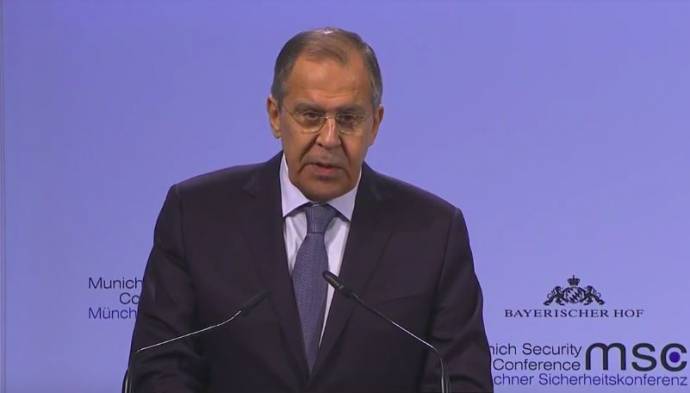STA, February 20, 2018 – Russian Foreign Minister Sergey Lavrov will pay a working visit to Slovenia on Wednesday to discuss with Foreign Minister Karl Erjavec a number of bilateral and international topics, and sign a memorandum to found a Russian museum in Slovenia. Lavrov will also be received by President Borut Pahor.
The Slovenian Foreign Ministry has announced that the ministers will discuss current global issues, focussing on the Western Balkans, the Ukrainian crisis and the situation in the Middle East.
While Slovenia supports Western Balkan countries' accession to the EU, Lavrov has recently criticized the EU's policy whereby the candidates have to choose between Russia and the EU.
Similarly, the two countries do not see eye to eye with regards to NATO expansion to the Western Balkans. However, the Foreign Ministry did not specify this among the topics to be discussed by Erjavec and Lavrov.
Slovenia is a strong advocate of Western Balkan countries' NATO integration, but Lavrov labelled it "a mistake" as he spoke to Russian news agency Tass before his tour to Slovenia and Serbia.
He said that Europe was being divided into two parts, with the dividing line ever closer to the Russian borders. He added that NATO's activity enhanced no-one's security.
Ljubljana and Moscow also have different views on Kosovo. While Slovenia was one of the first countries to recognise its independence ten years ago, Russia opposes it.
Russia would be willing to accept only a solution agreed on by Belgrade and Pristina, otherwise there is no sense in discussing Kosovo's UN membership, Lavrov said in an interview for the Serbian news agency Beta.
As for the conflict in eastern Ukraine, Slovenia and Russia share a stance that the 2015 Minsk agreements are the foundation for its resolution.
In the Middle East, both countries support the fight against the extremist Islamic State (IS), and Slovenia also takes part in the global anti-IS coalition.
Both countries also advocate a peaceful solution to the Syrian conflict, which has claimed more than 340,000 lives since it broke out in March 2011.
Erjavec and Lavrov, who meet quite often, roughly once a year, are also expected to sign a memorandum on the establishment of an International Research Centre for the Second World War in the city of Maribor.
The centre is to be set up on the premises of a former Nazi camp for Soviet POWs in the borough of Melje, which the Maribor municipality bought last year.
The investment to get the centre up and running is estimated at 2.5 million euro and will be provided by Russia.
Its activity will focus on researching both nations' fight against the Nazi and Fascist occupying forces and crimes committed by them.
It will also look for information about citizens of the former Soviet Union and other countries who fought in the Slovenian resistance movement or were deported to Nazi camps in the Slovenian territory.
The last time Erjavec and Lavrov met was in Moscow last October, when the Slovenian minister paid a working visit to Russia.
At the time, the pair labelled Slovenian-Russian relations as positive, praising progress in economic and cultural cooperation.
Russia is also an important economic partner of Slovenia's, and economic cooperation is to be one of the topics discussed tomorrow.
Bilateral trade reached a record high of 1.47 billion euro in 2013, but has been falling since due to Russia's poor macroeconomic showing and EU sanctions against it. It dropped below one billion euro in 2016.
However, the trend seems to be turning around, with the volume of trade in goods and tourism exchange believed to have increased again last year. In the first ten months of 2017, trade topped 635 million euro.







